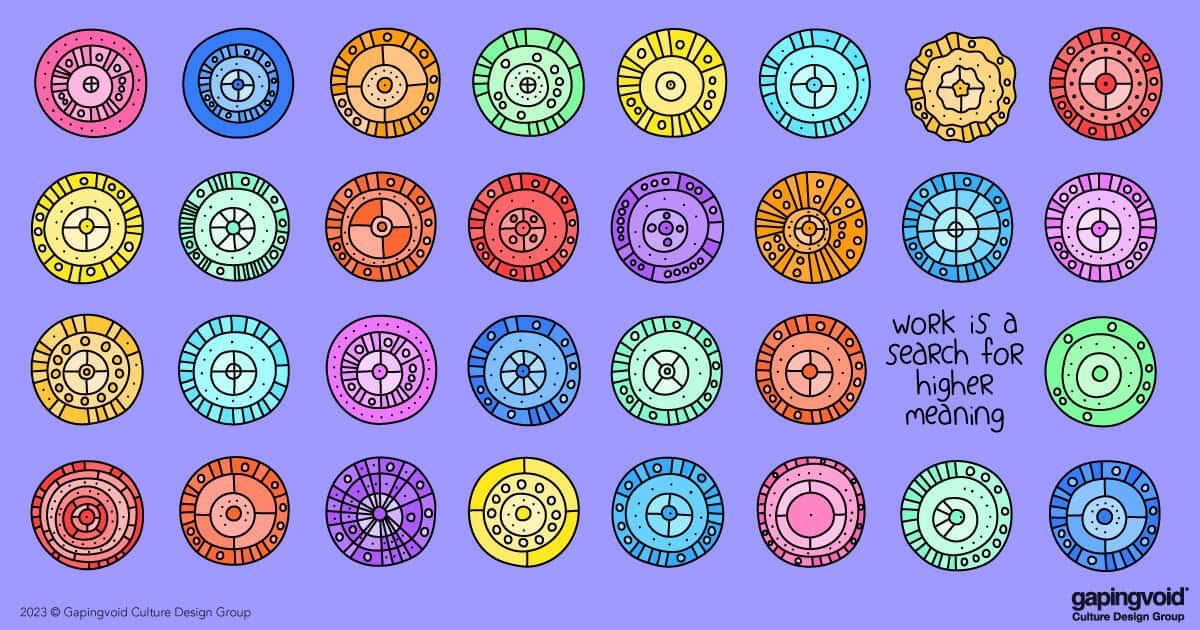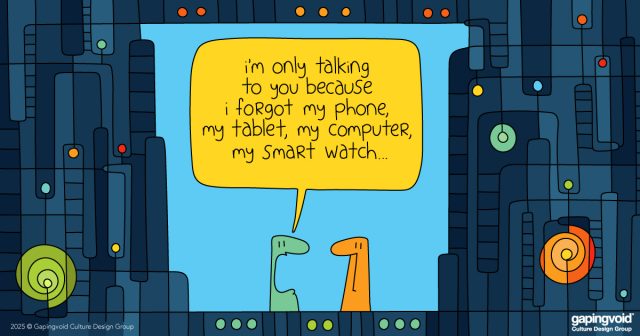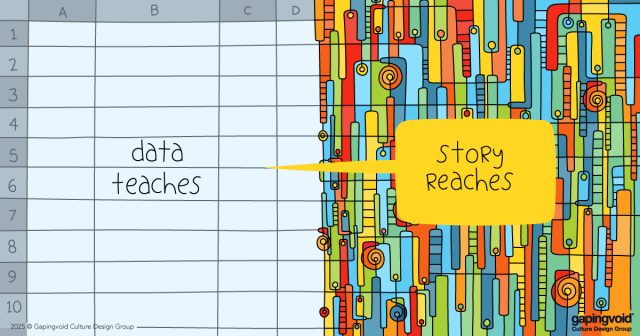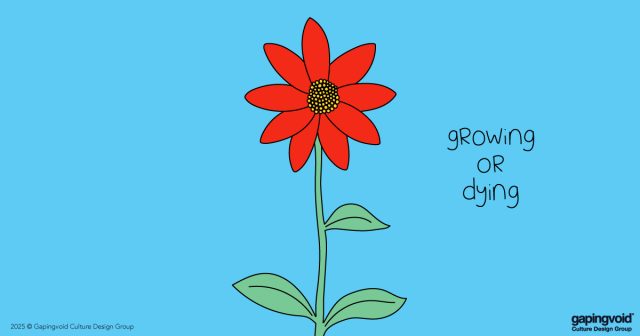
“We are meaning-seeking creatures. Dogs, as far as we know, do not agonize about the canine condition, worry about the plight of dogs in other parts of the world, or try to see their lives from a different perspective. But human beings fall easily into despair, and from the very beginning we invented stories that enabled us to place our lives in a larger setting, that revealed an underlying pattern, and gave us a sense that, against all the depressing and chaotic evidence to the contrary, life had meaning and value”
― Karen Armstrong, A Short History of Myth
Back when he was still CEO of Mailchimp, Ben Chestnut had a striking line he liked to give his employees:
“It’s not my job to make you happy.”
Ben’s not an unfeeling sociopath. He is in fact a lovely fellow. What Ben meant was that he wasn’t trying to make his employees happy per se, because who the heck knows what makes other people happy. People are complicated.
He was simply focused on something greater than happiness. Focused on creating a space where his employees were most likely to be happy and fulfilled because he rightly believed that this would make them more productive.
Every soldier knows that people are always more productive when morale is high. And the same is true for knowledge workers.
All this, of course, is a cultural thing, and culture is the number one creator of value in any organization.
So where do great cultures come from?
Short answer: shared experiences and shared meaning.
Like Ms. Armstrong said above, humans are meaning-seeking creatures. And the funny thing about meaning is that it’s not singular.
Nobody with a meaningful life gets it from a single source. People get meaning from a variety of sources: family, friends, religion, work, politics, identity, art, science, philosophy, hobbies, etc.
People who try to get their meaning from just one source (whatever that might be) usually end up resembling miserable cult members.
“Monomeaning” is a dead end.
Therefore, people tend to get meaning from what we’d call “Meaning Bundles.” Various meanings, all bundled together. Just like we like buying popcorn and a drink together at the movies, people like bundles because they’re easier for our brain to process.
So a great culture, therefore, can be thought of as a big “Meaning Bundler.” Which is what a great business really is, when you think about it.
Bundling meaning isn’t particularly hard. The hard part is knowing what means are worth bundling together. Actually knowing what you care about as a company, not only what the outside world says you should care about.
And you’ll never learn that from a spreadsheet. It’s something that’s learned from the heart.



